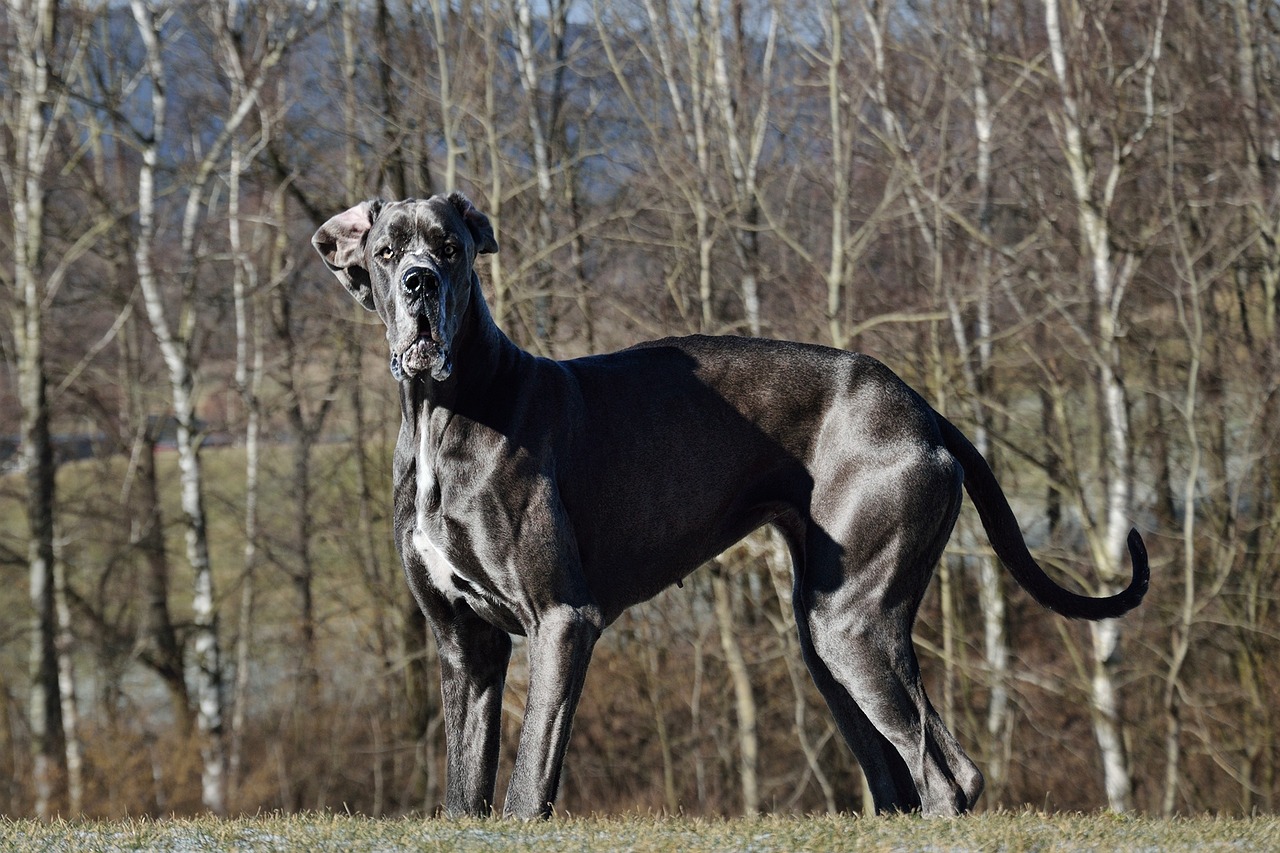

Great Danes are known for their gentle and friendly nature, but they can also be prone to reactive barking. Whether it’s barking at strangers or other dogs, this behavior can be disruptive and make it difficult to socialize or take them out in public. Reactive barking in Great Danes may be a result of fear, anxiety, territorial behavior, or lack of socialization. Fortunately, there are several strategies that can be used to help Great Danes learn to control their barking and respond appropriately in different situations. In this article, we will explore ten effective strategies that can be used to help Great Danes overcome reactive barking and become better-behaved companions.
⚠️ Note: While the tips below should get you started, its important to realize that your Great Dane’s excessive barking is symptom of reactivity. Consider looking into an online training course that specifically addresses reactivity (we like SpiritDog’s “Tackling Reactivity course or K9 Institute’s Dog Masterclass)
1. Identify and Understand Your Great Dane’s Triggers:
The first step to addressing reactive barking is to identify the specific triggers that cause your Great Dane to bark. Observe your dog closely to determine what situations or stimuli provoke their barking, such as encountering other dogs, strangers approaching, or loud noises. Once you understand the triggers, you can develop a targeted plan to address the issue.
2. Desensitize Your Great Dane to Triggers:
Desensitization is a gradual process that involves exposing your Great Dane to its triggers at a comfortable distance, allowing them to become more accustomed to the stimulus without reacting. Over time, you can slowly decrease the distance between your dog and the trigger, always rewarding calm behavior. This process helps your dog become less reactive to the trigger, ultimately reducing their barking.
3. Use Counter-Conditioning with Your Great Dane:
Counter-conditioning is another technique that can help change your Great Dane’s emotional response to a trigger. By pairing the trigger with something positive, such as treats or toys, your dog can begin to associate the stimulus with a positive experience rather than fear or anxiety. Over time, this can reduce your dog’s reactive barking.
4. Use Positive Reinforcement with Your Great Dane:
Reward your Great Dane for remaining calm and quiet in situations where they would typically react with barking. Consistently offer praise, treats, or affection when your dog displays appropriate behavior in response to their triggers. This positive reinforcement helps your dog learn that there are better ways to cope with their triggers than barking.
5. Teach Your Great Dane the “Quiet” Command:
Train your Great Dane to understand and respond to the “quiet” command. When your dog starts barking in response to a trigger, calmly say “quiet” and wait for them to stop. As soon as they are silent, immediately praise and reward them. Repeat this process consistently until your dog associates the command with the desired behavior.
Related: What online dog training program does iHeartDogs recommend for reactive barking?
6. Redirect Your Great Dane’s Attention:
When your Great Dane begins to bark reactively, try redirecting their attention to a more productive activity. Offer a favorite toy, initiate a training session, or engage in play to refocus their energy. This helps your dog learn that there are alternative ways to react to stimuli, rather than barking.
7. Provide Adequate Exercise and Mental Stimulation for Your Great Dane:
A well-exercised and mentally stimulated Great Dane is less likely to engage in reactive barking. Ensure your dog receives enough physical activity and mental stimulation daily through walks, play sessions, and interactive toys. This can help reduce pent-up energy and frustration, which can contribute to reactive barking.
8. Create a Calm Environment for Your Great Dane:
A chaotic or noisy environment can exacerbate your Great Dane’s reactive barking. Create a calm and quiet space for your pet, with a comfortable bed and designated area for their toys. Use calming scents, like lavender or chamomile, and soothing sounds, such as classical music or white noise, to help reduce anxiety and promote relaxation.
9. Manage Your Great Dane’s Environment:
While you work on addressing your Great Dane’s reactive barking, consider managing their environment to limit exposure to triggers. This may involve using window films to obscure your dog’s view of passersby, creating a designated “safe space” for your dog to retreat to, or using baby gates to restrict access to areas with high trigger exposure. Managing your dog’s environment can help reduce their reactive barking while you work on implementing other strategies.
10. Try an Online Dog Reactivity Training Course
If your Great Dane’s reactive barking continues despite your efforts, consider consulting with a professional dog trainer or behaviorist.
2 online dog training programs we like are:
1. SpiritDog’s “Tacking Reactivity” Course
The SpiritDog Tackling Reactivity Course is an online training program designed to help dog owners address their dog’s reactive barking without the need for expensive in-person training. The course aims to help owners understand their dog’s triggers and teaches techniques to calm and accommodate reactive dogs. Developed by experienced dog trainer Steffi Trott, the program offers video lessons, instructional PDFs, quizzes, and access to trainers for support.
2. K9 Training Institute’s “Dog Masterclass”
More than just an obedience course, this more comprehensive training course tackles any behavior problem you might face with your dog.
10 Reasons Why a Great Dane Might Be Reactive Barking
- Fear or anxiety: Great Danes may reactively bark when they feel fearful or anxious, especially when they encounter strangers or new situations.
- Territorial behavior: Great Danes are known to be territorial, and they may bark to protect their home or space from perceived threats.
- Lack of socialization: Great Danes that have not been socialized properly may reactively bark at other dogs or people due to fear or uncertainty.
- Separation anxiety: Great Danes that suffer from separation anxiety may bark excessively when left alone or when their owners are out of sight.
- Lack of exercise: Great Danes that do not get enough exercise may become bored or restless, leading to reactive barking as a way to release pent-up energy.
- Frustration: Great Danes may reactively bark out of frustration when they cannot get what they want or when they feel blocked from achieving a goal.
- Attention-seeking behavior: Some Great Danes may learn that reactive barking gets them attention from their owners or other people, leading to a habit of barking for attention.
- Breed tendencies: Great Danes may have a genetic predisposition to reactive barking due to their breeding history and instincts.
- Medical issues: In some cases, Great Danes may bark excessively due to underlying medical conditions such as pain, discomfort, or hearing loss.
- Learned behavior: Great Danes may learn to reactively bark from other dogs or from their owners who may inadvertently reinforce this behavior by responding to the barking.
In conclusion, reactive barking is a common problem among Great Danes, but it can be addressed with the right training and strategies. By understanding the reasons why Great Danes may reactively bark, owners can develop a tailored training approach and choose the strategies that work best for their individual dog. Whether it’s through positive reinforcement training, socialization, or environmental management, there are many effective strategies that can help Great Danes learn to control their barking and respond appropriately in different situations. With patience, consistency, and a commitment to training, owners can help their Great Danes become well-adjusted, well-behaved companions that are a joy to be around.
NEXT UP: Can an Online Training Course Help Stop My Great Dane’s Barking?
The post 10 Secrets to Stop Your Great Dane from Barking appeared first on iHeartDogs.com.
via Whisker Therapy


